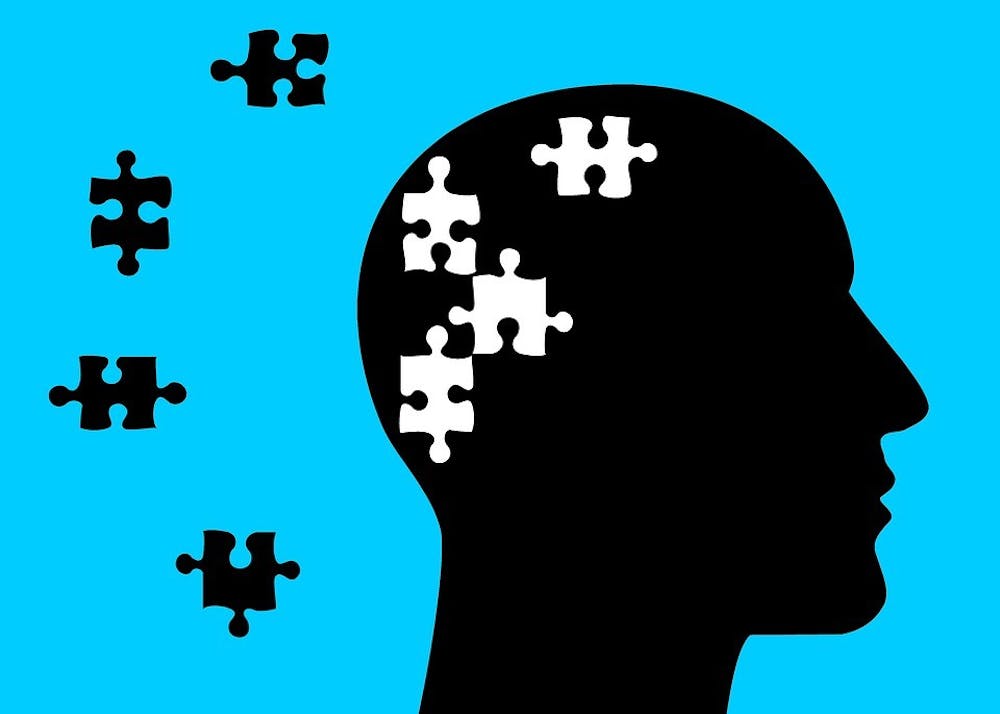Ancient civilizations thought mental health disorders were the work of the gods — piss one of them off? Here’s a mental illness. Today scientists understand these disorders much better, and the Mood Disorders Center at Hopkins is continuing to bring more knowledge to the table.
Mood disorders include depression and bipolar disorder, and can arise from illness or addiction. Anxiety is closely related to mood disorders as a common symptom.
The co-directors of A Place to Talk, senior Anna Koerner and junior Andrew Hellinger, agree that many college students face mental health disorders, especially at Hopkins.
“When you’re super busy in the middle of midterms, it’s very difficult to get to the gym; it’s very difficult to get that full seven to eight hours of sleep; it’s very difficult to make yourself nutritious meals... and those are very dangerous behaviors that are promoted by this culture of stress and competitiveness,” Hellinger said.
As about 10 percent of the adult U.S. population is diagnosed with mood disorders, they require proper understanding and treatment. The Mood Disorders Center, within the Department of Psychiatry and Behavioral Sciences, has dedicated itself to this goal.
So far scientists cannot pinpoint a clear cause of mood disorders. The general understanding is that they are the result of an imbalance of chemicals known as neurotransmitters in the brain.
The Oxidative Stress and Mood Disorder Trajectories Research Study within the Mood Disorders Center, led by Dr. Fernando Goes, aims to study images of the brain to understand mood disorders. They are searching for biological mechanisms to see what feeling “better” or “worse” looks like in a patient, and they hope to streamline intervention and prevention strategies in the future.
The causes of mood disorders may also be genetic. Koerner believes that understanding this could be beneficial in prevention.
“If you understand your genetic predisposition to it, that can help you be aware,” Koerner said. “‘Oh hey, depression runs in my family, this is something that I should be aware of and I should take more care of my mental health.’”
The Mood Disorders Center is creating databases to find those genetic links. The Family Genetic Studies of Bipolar Disorder project is collecting genomes from members of large families with bipolar disorder. A sector coined “Bioinformoodics” is compiling database servers, web applications and analytical tools for scientists to upload and share their findings.
Understanding the causes of mood disorders can tell scientists how and why someone is affected but not how to help them improve. There are many possible routes for treatment of mood disorders, including psychotherapy and psychotropic drugs, which affect behavior. Both are commonly used together, but the Mood Disorders Center focuses on psychotropic drugs such as antidepressants and lithium.
Goes is also leading the Center’s participation in ketamine trials. Commonly used in emergency rooms as an anesthetic, studies since 2006 have shown that ketamine has immediate effects on depression and bipolar disorder. Although high doses can cause hallucinations, ketamine is hailed as one of the biggest breakthroughs in psychiatry.
Koerner and Hellinger believe that people are often hesitant to take medicine for mental health disorders.
“There’s a stigma to it,” Koerner said. “When people take medicine, they think that there’s something wrong with them.”
She believes this stigma may be why some people don’t seek treatment. However, Koerner likened mental illness to a physical disorder: A patient may not want treatment, but it’s the best course of action.
While Hellinger believes there is a stigma, he hopes that scientific research can help.
“It really reduces the stigma if more people in the public begin to think of these illnesses as actual diseases that are rooted in biology,” Hellinger said.
The Mood Disorders Center is attempting to take its research one step further by studying personalized medicine. A clinical study is underway to investigate GeneSight Psychotropic, a test that analyzes a patient’s DNA to determine which drug will be the most effective. The Center is also participating in the National Network of Depression Centers’ Mood Outcomes Program, which aims to create a standardized questionnaire to best determine a patient’s mood disorder and severity. It has also developed the mobile app MHi-Go, which is intended to better keep patients on track and to provide more timely care.
Beyond research, the Center is heavily involved in community outreach. Koerner and Hellinger agreed that outreach and education are weapons against mood disorders, but with a caveat.
“It’s a double-edged sword,” Koerner said. “On one hand, it’s really important to raise awareness and have people become aware that mental health disorders are legitimate... on the other hand, you don’t necessarily want people to be like ‘oh, I’m sad, therefore I have depression.’”
However, the good seems to outweigh the bad. The Mood Disorders Center hosts the Annual Mood Disorders Research/Education Symposium to spread awareness and knowledge to physicians, scientists, family members and patients. The Center also created the Adolescent Depression Awareness Program (ADAP), which aims to educate school-based professionals, high school students and parents about depression and decrease the stigma surrounding it.
Ultimately both Koerner and Hellinger were glad to see Hopkins devoting research to mood disorders.
“Especially at Hopkins, such a large research university, the fact that they have a center focused on this sort of legitimizes it, and I think that’s really powerful,” Koerner said.





